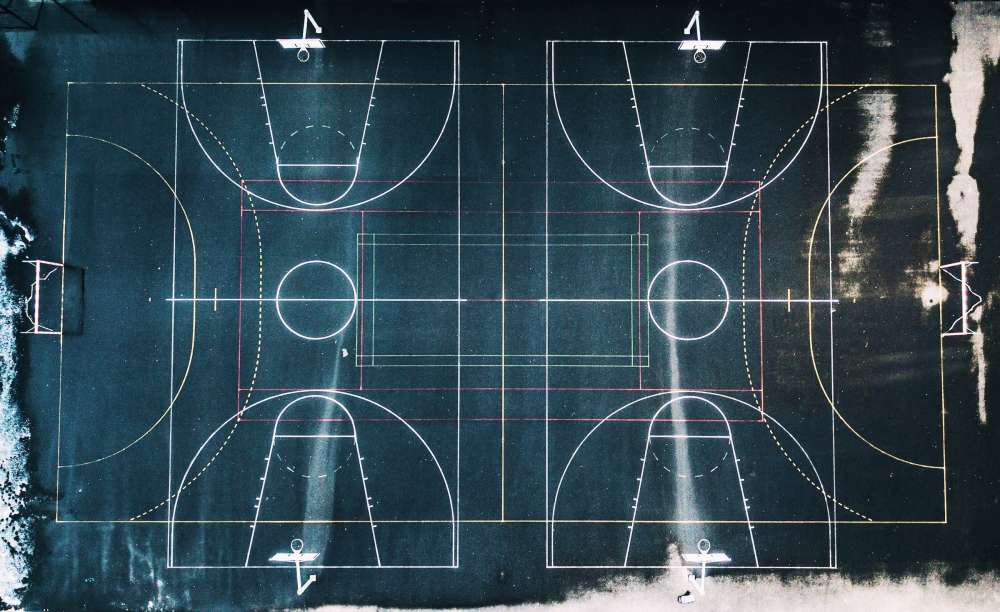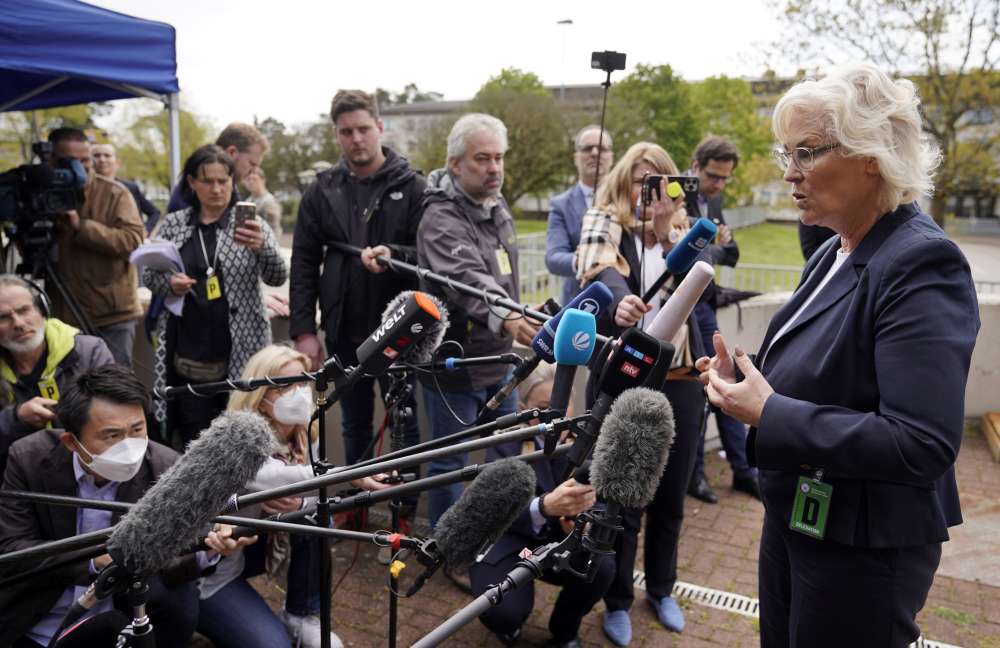Dogfight Football: Germany and the Art of Strategy

(Barna Bartis /Unsplash)
Good strategy often means playing both offense and defense simultaneously. Ahead of its new national security strategy, Germany needs to get its head in the game.
Germany’s first-ever Chancellor Otto von Bismarck once said “die Politik ist keine Wissenschaft … sondern eine Kunst” – politics is not a science, it is an art. And the same is true of strategy. In strategy-making, there are no iron laws like gravity. The race is not always won by the swiftest, and the victory does not always go to the strongest. Strategy is not planning, it is not tactics. There is no formula you can apply that will produce success. In fact, success in strategy is rarely replicable – it depends on too many factors which are in constant flux, requiring the strategist to constantly reconsider and recalibrate.
Strategy itself is a theory of victory and requires asking inward questions: What am I trying to achieve? And how can I orchestrate my resources to achieve it? In this way, the strategist is less a grand thinker than a chef with pots and pans on varying levels of heat, trying to make individual elements of a dish come together at an exact time. Or, rather, individual elements of many dishes come together at an exact time.
Every great strategist is, at their core, a desperate paranoiac. Being a good strategist requires the person to constantly brood over what could go wrong and shield their objective from those possibilities, while also scheming to capitalize on their adversary’s weaknesses. There is a nice example in the movie Top Gun Maverick called dogfight football – in the game, players must play both offense and defense at the same time. In short: If you are not worried that a trap door could open underneath you and dump you into the sewer below the sidewalk, you are not a practicing strategist.
Strategy Is a Verb
Military officials very often mistake planning for strategy. Because elected leaders have the responsibility of determining which objectives and resources will be made available in free societies, our militaries tend to focus on how to achieve politicians’ objectives with the fixed resources that the government has made available.
» If you are not worried that a trap door could open underneath you and dump you into the sewer below the sidewalk, you are not a practicing strategist. «
Author Sir Lawrence Freedman opens his magisterial history of strategy with a quote from boxer Mike Tyson: “Everybody has a plan ‘til they get punched in the mouth.” And that sentiment comes closer to the truth than most earnest war college pamphlets. Because strategy is not a noun, it is a verb.
Prussian Field Marshal Helmuth Von Moltke said that no plan survives first contact with the enemy, which is Tyson’s same idea elevated and helps to illustrate the difference between strategy and planning. Strategy is less about what you have planned than how to adapt those plans after contact with the enemy.
Another illustration of the distinction between planning and strategy comes out of the 1961 Berlin crisis. At their first meeting, Soviet Premier Nikita Khrushchev presented then-US President Kennedy with an ultimatum: either Western powers consent to East German authority over Berlin or their access would be shut off by Soviet military force. Planners in the US Department of Defense (DOD) began trying to work out what the Soviets might do and how to protect the interests of the Four Powers in Berlin, while also ensuring that the people of West Berlin remained free and part of West Germany, and Germany remained anchored in the West.
Key Points:
- Strategizing is about adapting to changing circumstances – a process in which Germany needs to invest more energy.
- To craft an effective national security strategy, Germany must be clear with itself about what it wants to, and not narrow the scope of its tools to just money.
- A real strategy will emerge when Berlin moves beyond simply explaining its position to enacting policies that balance Germany’s interests with its values.
The DOD team came up with more than 120 separate plans for achieving Western objectives in Berlin. At President Kennedy’s request, the team briefed the plans to former US President Dwight Eisenhower – Kennedy, being inexperienced, wanted the public support of the wartime hero who had faced down the same Soviet ultimatum concerning Berlin in 1958. As the DOD briefers concluded their extensive presentation of the plans, Eisenhower made the crucial distinction: “Plans are worthless, but planning is everything.” Planning trains your judgment around the interplay of various elements, the timing required to bring them into action and the limits of what different elements can achieve. Incidentally, none of those more than 120 Berlin plans anticipated the actual outcome of East Germany building a wall in their own sector, maintaining Western rights but controlling their own population’s movement.
Strategizing Outside of Politics
In addition, we often focus too narrowly on military history when looking for examples of strategy. We venerate military strategists because their strategies play out publicly and their wins and losses are so consequential. But examples of brilliant strategy are all around us, and some of the best ones have nothing to do with war or statecraft.
My favorite strategist is baseball player Bill Veeck. His memoir The Hustler’s Handbook is a fantastic primer on the discipline of clearly identifying objectives and finding creative ways to achieve them. When he owned a terrible baseball franchise that he lacked the money to improve, he came to the conclusion that women are more loyal to a losing team than men, and set about experimenting with ways to gain female fans. One of his ideas included setting up a child care center in the ball park: any woman buying a ticket could leave her children during the game in the care of registered nurses. Veeck’s staff complained that neighborhood women were taking advantage of the initiative, bringing in all the local children on a single ticket. The community expected Veeck to put a stop to it: instead, he reveled in them outsmarting him, congratulated them and thereby really did win female fans for his baseball club. That is how an elegant strategist operates.
Translating Zeitenwende into Action
What does all of this mean for Germany as it tries to operationalize its Zeitenwende (turning point)? To make a good strategy, the German government must be clear with itself about what it wants to achieve, and not narrow the scope of its tools to just money. Germany is at risk of turning the goal 2% defense spending into an objective. This 2% marker is just a metric with which to gauge whether Germany is improving its contribution to NATO’s common defense.
The German government has planted its flag with the Zeitenwende: it represents a Germany that responsibly shrugs off the comfort of being insulated from hard strategic choices. Repairing the military apparatuses that successive German governments have allowed to atrophy will be one crucial part of a German national security strategy. Another will be explaining how Germany will achieve energy independence while still meeting its climate goals.
» Strategy is not a noun, it is a verb. «
Having long been the beneficiary of other security contributors, Germany cannot remain a European leader without more substantively contributing to the new demands posed by Europe’s current security crisis – and not just with money and weapons. In addition, Berlin needs to put ideas forward for how to restabilize Europe and deal with the political and human consequences of Russia’s depredations.
Allies are already questioning the application of Germany’s upcoming security strategy to the international order’s other authoritarian predator, China. During German Chancellor Olaf Scholz’s visit in November 2022, Beijing seemed to be treated as more of a substitute market than the ‘strategic competitor’ of the US and the EU. The artistry of strategy will come with not just explaining, but enacting policies that balance German interests – particularly for economic prosperity – with the values of a free and just society that permeate German public attitudes.
Kori Schake
Director, Foreign and Defense Policy, American Enterprise Institute
Keep on reading

Rethinking European Defense Cooperation and Coalitions of the Willing
As Germany drafts its new security strategy, it should take the opportunity to embrace more flexible formats of European defense cooperation – including coalitions of the willing.

A little more conversation: Nur Mut zur strategischen Kommunikation
Wo sich Elvis mehr Ruhe erbeten hat, braucht Deutschland das genaue Gegenteil: mehr strategische Kommunikation. Denn StratKom stärkt die Resilienz in Demokratien und ihre Stimme auf globaler Ebene.
